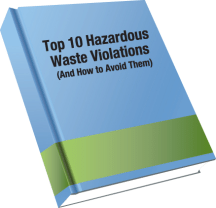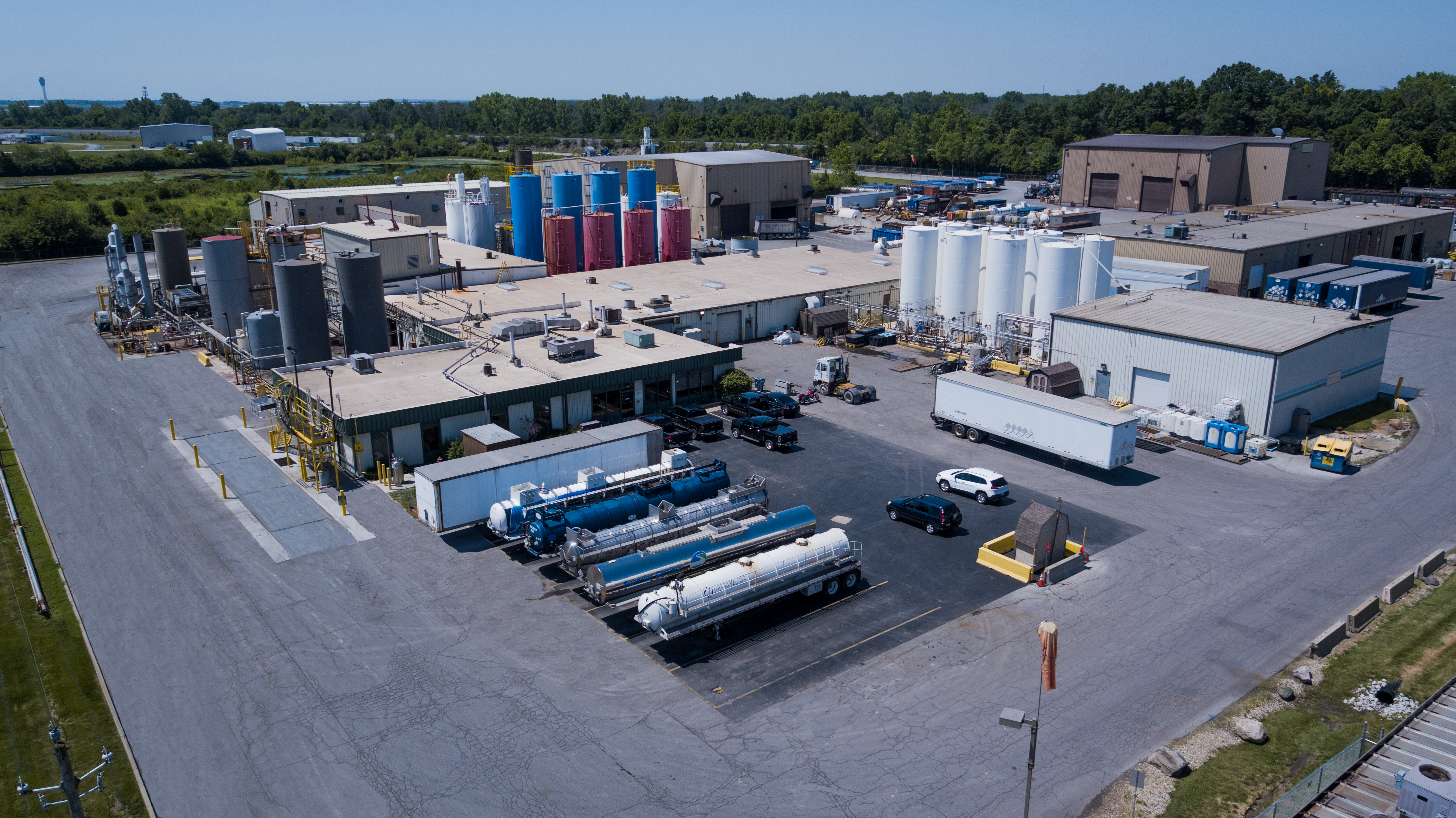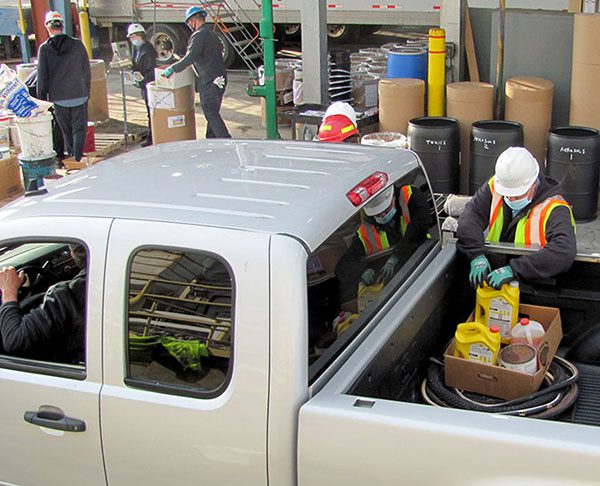
In honor of throwback Thursday I decided to rehash one of the first things we ever wrote about on this blog. The ten most common violations incurred by hazardous waste generators. As you can most likely infer, these items are ones you’ll want to make sure are not happening at your company. The ten items are listed and explained below. And if you’d like a little more information about the violations and how to avoid them you can also check out our eBook on the subject.
1. Open Container Violations – An open container includes containers that have tinfoil caps, funnels, or loose caps. Containers must be closed at all times unless they are being filled or emptied.
2. Storage Area Accumulation Date Violations – Remember, containers of hazardous waste in a 90 or 180-day storage area must be marked with an accumulation date.
3. Universal Waste Violations – This includes management of wastes such as batteries and lamps.
4. Used Oil Labeling Violations – Remember that any container or tank utilized to hold used oil should be labeled “Used Oil.”
5. Storage Area Labeling Violations – Containers in a 90 or 180-day storage area must be marked with the words “Hazardous Waste” as well as generator name and address, accumulation start date, contents, physical state, and hazardous properties.
6. Satellite Accumulation Area Labeling Violations – Always remember that a container must be labeled after the first drop of waste is added.
7. Contingency Planning Violations – Make sure to have you plan in place and that all employees know what to do if needed.
8. Failure to Perform Weekly Inspections of Hazardous Waste Storage Areas – Fairly self-explanatory, make sure you have weekly inspections done.
9. Failure to Have a Hazardous Waste Reduction Plan On-Site – A hazardous waste reduction plan (often referred to as a waste minimization plan) is required for all hazardous waste generators.
10. Failure to Make a Hazardous Waste Determination – It is imparitive to remember that a hazardous waste determination must be made for each and every waste generated on your site.
More News From Heritage
-
Published Articles 8/2/22
How Safety, Maintenance, and Reliability Are Intertwined
VP of Health and Safety Jim Mangas discusses the importance of plant safety, maintenance, and reliability (featured in BIC Magazine July/Aug '22)
-
Blogs 7/28/22
Spotlighting Our Environmental Interns
Highlighting some of the wonderful interns we have at Heritage this year!
-
Blogs 7/11/22
Turning Hazardous Waste into an Alternative Fuel
In this blog we walk you through the process of fuel blending, where we can turn hazardous waste materials into a viable alternative fuel source.
-
Community News 6/15/22
2022 Habitat for Humanity Build
Our 12th annual Habitat for Humanity Build
-
Blogs 4/13/22
After Hurricane Ida, Our Port Fourchon Office Rebuilds
On August 28th, 2021, the Louisiana coast was battered by Hurricane Ida. This included our Port Fourchon Service Center, where the devastating hurrica
-
Community News 4/7/22
Heritage readies for Earth Day HHW collection in East Liverpool
Heritage Thermal Services is pleased to announce that its collection of household hazardous wastes for the East Liverpool area returns for 2022.
-
Published Articles 4/2/22
The Impact of Changing Conditions
VP of Health and Safety Jim Mangas discusses preparedness for unexpected conditions during a project. (featured in BIC Magazine March/April '22)
-
Blogs 3/11/22
International Women’s Week Spotlight – Rachel McGrogan
Rachel McGrogan speaks about her time as a Lab Chemist at Heritage.








